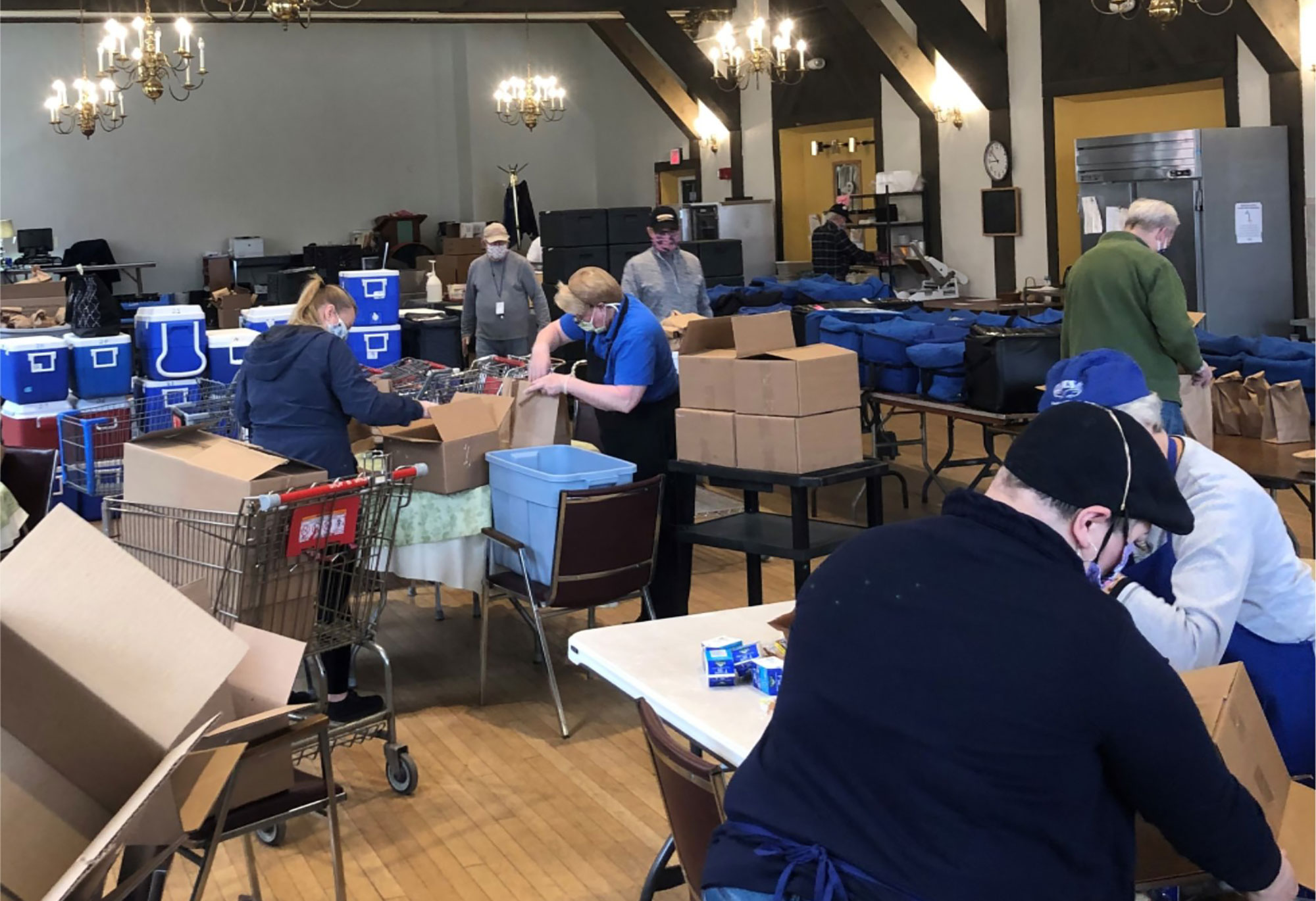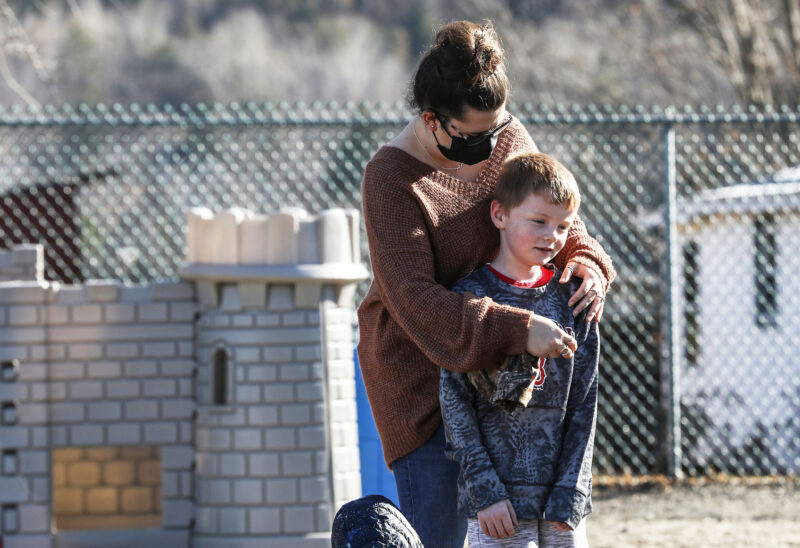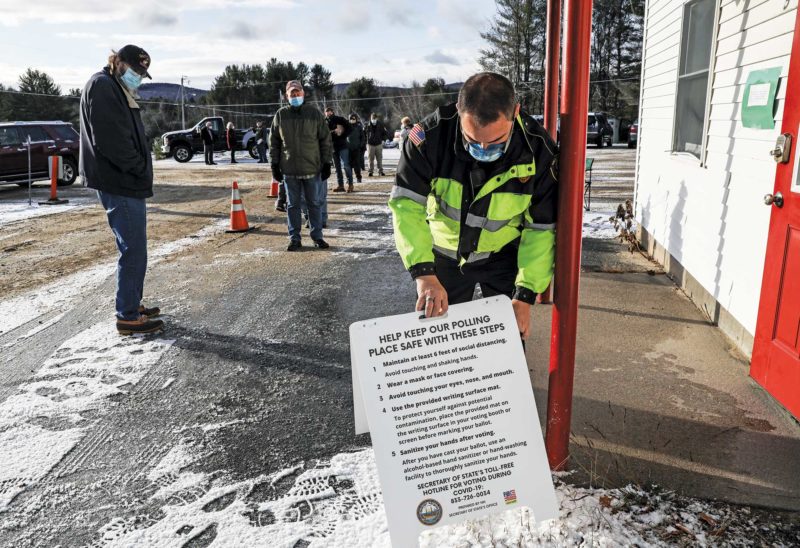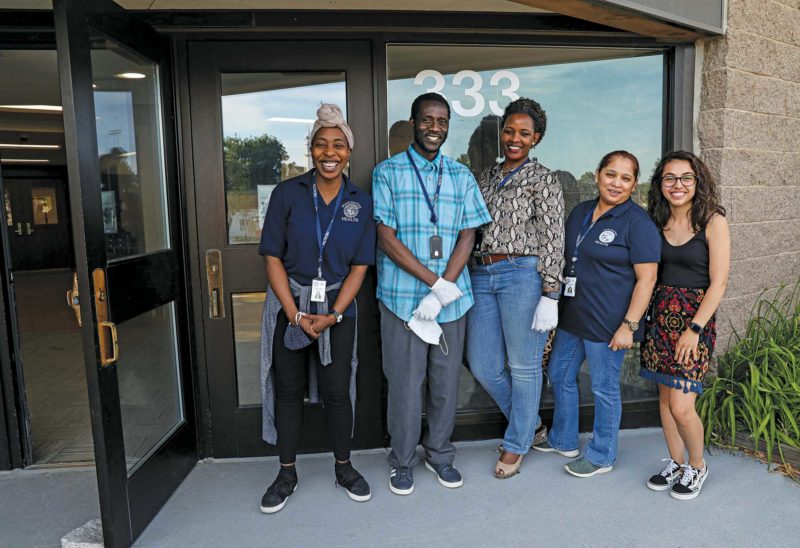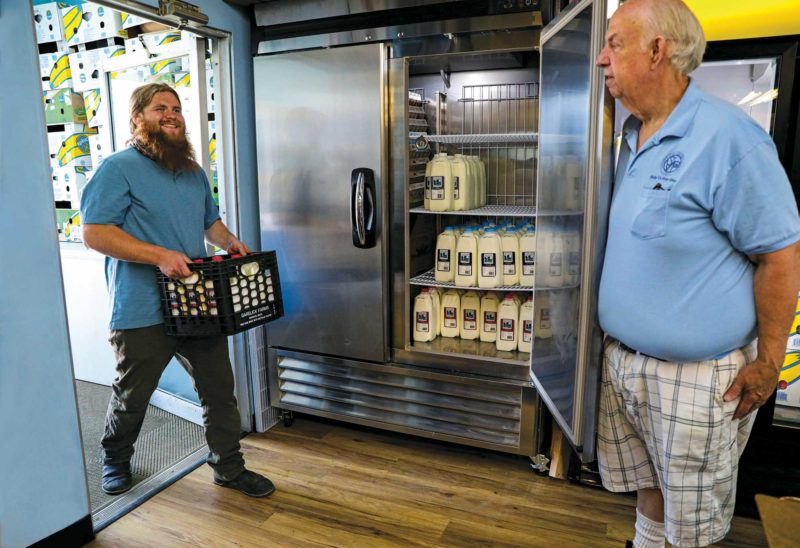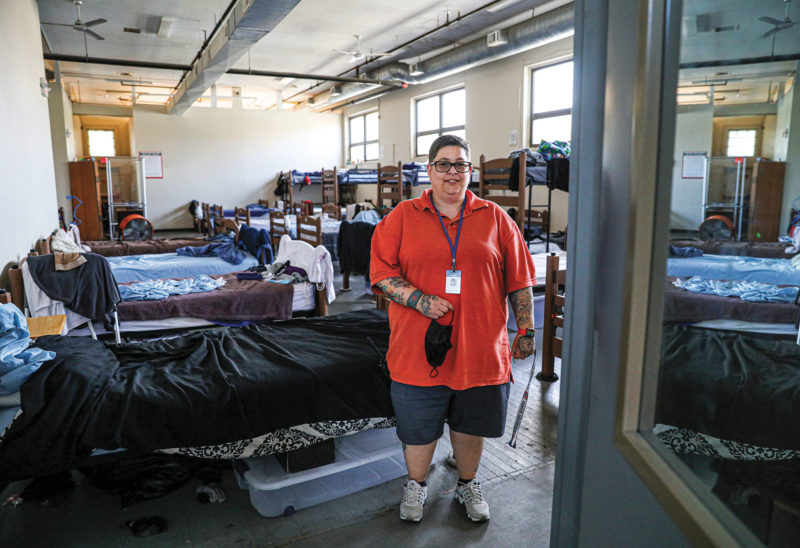As a Meals-on-Wheels driver, Maureen Fadden’s top priority is delivering healthy prepared meals to the aged and people with disabilities who would otherwise go hungry. Right behind is a second form of nourishment: providing a social connection and wellness check for people who live in isolation.
Those priorities may be the only thing that COVID-19 has not changed for Meals-on-Wheels programs in the state.
“Since COVID, we’re only seeing clients one day per week,” said Fadden, a retired postmaster who shares a route with another driver in Alton and Gilmanton, part of a larger network run by the Community Action Program of Belknap-Merrimack Counties.
Before COVID, Fadden and her partner delivered hot meals five days a week to about 34 clients. They’d bring the food into each home, chat a bit with each client and make sure all was well before moving on to their next stop.
“Now we don’t even actually go in,” Fadden said. “We do have to physically see them, but we’re not going into their homes. After we leave, we remove the gloves, dispose of the gloves, and we’re wearing a mask.”
Masks, gloves and hand sanitizer are now standard issue for Fadden and other drivers who deliver out of the Alton Senior Center. Instead of a hot meal prepared daily out of a central kitchen in Concord, drivers now deliver a week’s worth of frozen meals. And instead of connecting in person, every day, they now talk by phone on days they no longer deliver.
“Most of the time we’re checking in to see how their supplies are going, what they may need,” Fadden said. “They want to hear what’s going on in Alton particularly. Sometimes we just shoot the breeze, too.”
For the Belknap-Merrimack CAP and a second Meals on Wheels program, run by St. Joseph Community Services (SJCS Meals on Wheels) and serving Hillsborough County, the pandemic has driven significant changes and imposed new demands on operations — all of which required quick adaptations.
Grants from the Charitable Foundation’s Community Crisis Action Fund and other funds have been helping nonprofit meals-on-wheels programs continue to serve their communities.
“Nonprofit meals-on-wheels programs have been a critical link in keeping particularly vulnerable populations healthy and safe during this crisis,” said Ben Amsden, a senior program officer at the Charitable Foundation. “Elders rely on this service to meet basic nutritional needs — but also for critical safety checks. These nonprofits adapted and continued to meet their important missions during this incredibly challenging time.”
For Suzanne Demers, the director of elder services for the Belknap-Merrimack County CAP, the pandemic brought on a case of deja vu. She had worked previously in operational crisis management for hospitals and the Red Cross. For the first two weeks of the crisis, she said, there she was again: sleeping with her cell phone, up at 3 a.m. and on the computer.
SJCS Meals on Wheels has also shifted to frozen meals and reduced the number of delivery days. And it’s been all-hands-on-deck to meet demand: President Meghan Brady has delivered Meals on Wheels routes when help is needed — and she’s seen the consequences of COVID-19 firsthand.
“That friendly ease that you used to have?” When you knocked on the door and said ‘Meals on Wheels!’ ” she recalled. “Now, it’s open the door and put it on the table, then you back out. It’s not the same.”
Because not everyone has a microwave to heat up the frozen meals, both SJCS Meals on Wheels and the Merrimack-Belknap CAP provide microwaves when necessary.
When SJCS Meals on Wheels switched to doing wellness checks by phone on days when drivers didn’t deliver, they discovered another barrier: some of their clients had no phones. Now SJCS Meals on Wheels provides TracFones to those without.
In addition to meal deliveries, many programs had operated community dining centers prior to the pandemic, often based in senior centers. People could come for a hot meal, social time with friends, fitness classes and other activities. Those operations have been suspended, though some are providing to-go meals that people can pick up.
Organizations can’t reopen congregate meals until the state gives permission, and they are already planning adaptations.
“We have to consider: instead of six to a table, do we do four to a table?” said Jon Eriquezzo, the vice president at SJCS Meals on Wheels. “How far do we spread the tables out? How do we deliver the food?”
There’s also the question of when — and whether — participants will return. “The social isolation that this has been creating for a lot of adults is a really big concern,” Brady said. “We hope they do feel comfortable at some point coming back.”
The dangers posed for elders by community spread of COVID, stay-at-home orders and the shuttering of congregate meals have combined to increase demand for meals-on-wheels across the state.
The crisis has put pressure on budgets and the fundraising that helps support nonprofits as well. For SJCS Meals on Wheels, fundraising typically covers more than 30 percent of the budget — and for many organizations, the pandemic has derailed spring fundraising efforts. Eriquezzo doesn’t see demand for services decreasing as the pandemic passes, whenever that time comes. While people have responded generously to the needs of the moment, he worries about sustaining the levels of charitable giving to support the increased demand for services.
“There has been this huge outpouring across the country, with people wanting to donate and do what they can,” he said. “What happens next year? Does that dry up?”
The pandemic has changed the way the staff operate internally. For some drivers, Demers said, technology like Zoom meetings is daunting. Anxiety has been an issue too; the Belknap-Merrimack program’s average Meals on Wheels driver is 74 years old. The changes in delivery procedures are intended to protect the drivers as well as the clients who depend on them.
“If we all stayed home, no one would get fed,” said Demers, who described her staff’s response as amazing.
Fadden said she can see the burden of COVID-19 weighing on her clients. “Emotionally, it’s more than bored,” she said. “They’re not going out at all, they’re not seeing their grandchildren.”
But so far, her clients all remain healthy, and for that she’s grateful. “That’s the main thing,” she said.
Nonprofits need help more than ever. Please consider giving to support meals-on-wheels programs and other nonprofits that provide critical services in our communities during NH Gives on June 9 & 10. The first $250,000 of donations will be doubled thanks to matching contributions from the Charitable Foundation and generous fund-holders.

